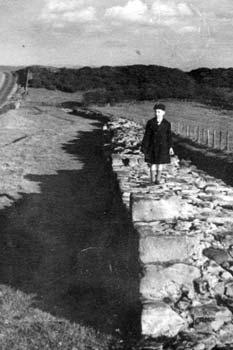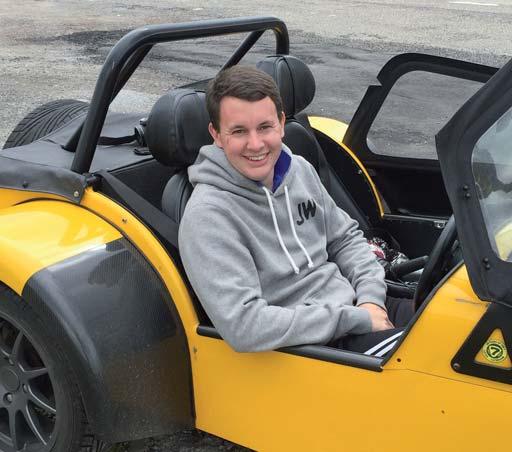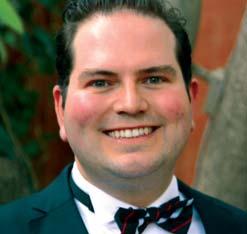Boxing at RGS By Peter ‘Taff’ Davies (60-70) It was with sadness that in the last edition of the ONA Magazine, I read Mike Oswald’s (66-03) obituary of the last master in charge of boxing, Michael Anthony ‘Tony’ Griffiths MBE (69-02 and 05-06). Tony had a ready smile and could be characterised in an old fashioned way, as a ‘very good bloke’; although it may surprise current pupils to learn that boxing was compulsory for the boys of earlier generations.
W
hen queried, WD Haden (60-72), who was something of a throwback to an earlier era and Headmaster from 1960 to 1972, stated in a way that brooked little argument, that “RGS boys ‘do’ boxing”. Thus, everyone in the Removes was required to practice boxing one lunchtime a week before the Removes’ House boxing finals at the end of Spring Term. For many, boxing was to be endured, but it requires a level of fitness which other sports do not and had four advantages at RGS. First, in contrast to rugby, one did not have to face an opponent much larger than oneself. Second (and this goes to the heart of the ethos of amateur boxing and was rigorously upheld by RGS masters), one is matched against opponents of similar ability. It is axiomatic that boys do not continue a sport if they are hurt repeatedly or are frightened. Thus, boxing was safer than other sports. Third, like the rugby team, the boxing team went on tour to London, but took every age from the Removes to the Upper Sixth, whereas one would have to be an exceptional 14 year old to make the First XV. Fourth, one becomes very sweaty when boxing but not muddy, cold, or bored. There are two ways to box, of course. You either try to hit your opponent more often than he hits you or you try to avoid being hit as often as him; if necessary by propelling oneself away from him (or her, these days) as quickly as possible. As the best thing in life is to be under-estimated, I favoured the second of these strategies in my brief amateur boxing career, albeit sometimes unsuccessfully; while some RGS boxers with good powerto-weight ratios could box or fight as the mood took them.
6
Boxing Club, 1964
Boxing is not a team sport, but prior to my first boxing team photograph I was told in no uncertain terms to, “get the smile off my face”, as the team was supposed to look tough! I was also told to keep my hands behind my biceps to demonstrate that I had some. This also seems to have been the case in the 1967 photograph shown opposite. I was always struck by the inherent kindness with which masters in charge of boxing treated boys to ensure that they came to no harm. While for most, there were better things to do with their lives than box during a precious lunchtime the Removes’ boxing finals were one of the highlights of the RGS year. The old gym was packed with boys of every year, perhaps 200 or 300 urchins hoping, and usually getting, wonderful entertainment with boys hanging from the bars on the walls. Matching was the key. It would have been fruitless to match, say, the first violin from the orchestra against the U14 scrum-half but there was no reason not to match him against the second violin. I recall the hilarity caused when John ‘Richard’ Sharp (60-71), after entering the ring, was instructed in no uncertain terms to remove his glasses and replied in a loud voice, “This is ridiculous!” In his match, I do not think that a glove was laid by either boxer on his opponent, as both circled the ropes on opposite sides of the ring as geometrically as far from each other as it was possible to be, to the hilarity of a baying crowd. In contrast, the most suitable opponent for the second-row forward was the other second-row forward and similarly, prop-forwards often had to fight each other. Pride in one’s House and oneself resulted in a few serious fights such as that between Alan ‘AJ’ Weir (60-70) and Jamie Thompson (63-70) in my year, but I do not remember damage being done except for bruised egos. I remember losing to Ray Bell (60-70) in my match and later, in a boxing team House tournament, to Niven ‘Niv’ Hunter (59-69) who I could see but not catch, let alone hit. Boxing had been nurtured in the post-war years by Donald ‘Spitty’ Meaken (24-65), head of Geography; nicknamed thus because of an unfortunate lisp, he portrayed an intimidating old-fashioned figure. Don Meaken encouraged any boy with academic and boxing talent, especially geographers, to apply to Cambridge and many subsequently won Blues. Such was his aura, having left RGS nearly 18 months before, I was astonished to receive a written formal








